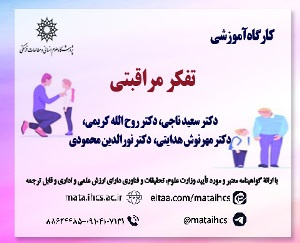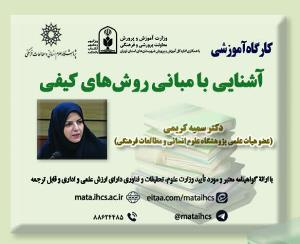اعتبار شرط همتایی دین و مذهب در نکاح در حقوق ایران، مصر و لبنان (مقاله علمی وزارت علوم)
درجه علمی: نشریه علمی (وزارت علوم)
آرشیو
چکیده
ایران، مصر و لبنان از جمله کشورهای اسلامی اند که منبع قوانین خانواده در آن «مذهب» است. احوال شخصیه در کشورهای اسلامی بر اساس قواعد و احکام مذهبی است و مصادیق مرتبط با آن نیز، از قبیل نکاح، برگرفته از احکام و دستورات مذهبی می باشند. نظام حقوقی لبنان نوعی از ازدواج را تحت عنوان ازدواج مدنی که الگوگرفته شده از کشورهای پیشرفته است، به عنوان نکاح غیرهمتا می پذیرد، اما زمانی آن را به رسمیت می شناسد که انعقاد آن در خارج از کشور لبنان تحقق یافته باشد. این استثنای قانونی به دلیل به وجود آمدنِ شرایطی توسط قانون گذار دینی در لبنان است که از آن جمله می توان به ازدواج برخی از مردان و زنان که از جوامع یا فرقه های مختلف اند، اشاره نمود یا زوجینی که قصد جدایی از یکدیگر دارند ولی با منع دینی روبرو هستند. همین امر باعث شد تا عده ای برای رفع این مشکل، به دنبال راه حل های قانونی از جمله ازدواج مدنی باشند؛ زیرا بیشتر کشورهای خارجی و برخی کشورهای مسلمان ازدواج مدنی را چه به صورت آمرانه و چه اختیاری، تصویب کرده اند. از این رو، با پیشرفت جوامع، افزایش تعاملات اجتماعی و بالا رفتن سطح فرهنگی خانواده ها، کوشش شده در این مقاله، شرط همتایی دین و مذهب با نگاهی به تغییر جایگاه زن در خانواده با تغییر مفهوم سلطه و اقتدار بازخوانی شود و همچنین با اتکال به ظرفیت های فقهی قاعده لاحرج و اصول مصلحت و عدالت و با استعانت گرفتن از ازدواج مدنی در لبنان، خلأهای قانونی نظام حقوقی ایران و مصر مرتفع شود تا مغایرت آن با کنوانسیون های بین المللی کاهش پیدا کند.The validity of the equal condition of religion and Islamic sects in marriage in Iranian, Egyptian and Lebanese Law
Iran, Egypt and Lebanon are among the Islamic countries where the source of family laws is "religion" and personal status in Islamic countries is based on religious rules and regulations and the examples related to it, such as marriage, are derived from religious orders. But the legal system of Lebanon has a type of marriage called civil marriage. It is recognized as a type of non-peer marriage that took place outside that country which is applied due to the conditions imposed by the religious legislature in Lebanon, which has created an obstacle for the marriage of some men and women who are from different communities or who intend to separate from each other. So, this caused some people to look for legal solutions, including civil marriage, to solve this problem. Because most of the foreign countries and some Muslim countries have approved civil marriage, either mandatory or voluntary. Therefore, with the progress of societies, social interactions and the raising of the cultural level of families, an attempt has been made in this article to reread the condition of the equality of religion and religion by looking at the change of the position of women in the family with the change of the concept of dominance and also by relying on the jurisprudential capacities of the rule of lahrij and the principles of expediency and justice, and by taking the help of civil marriage in Lebanon, the legal gaps in the legal system of Iran and Egypt should be resolved.







